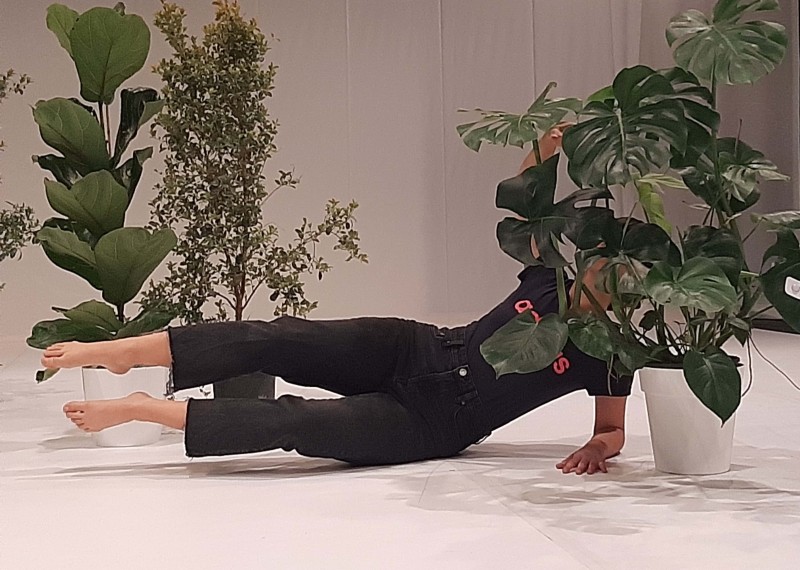
@Ceci Stuck
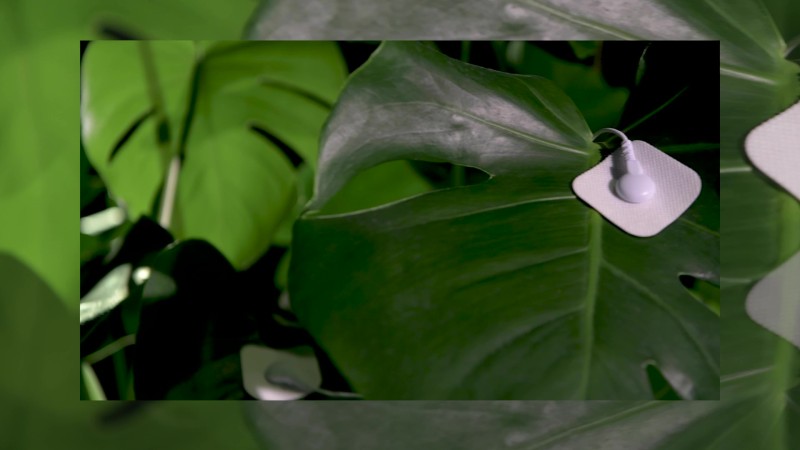
@Elena Mattioli/Lele Marcojanni
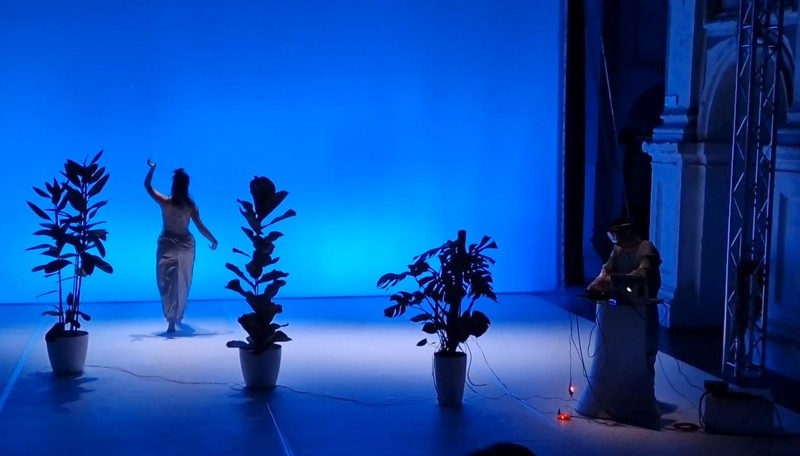
@Carlo Francesco Conti
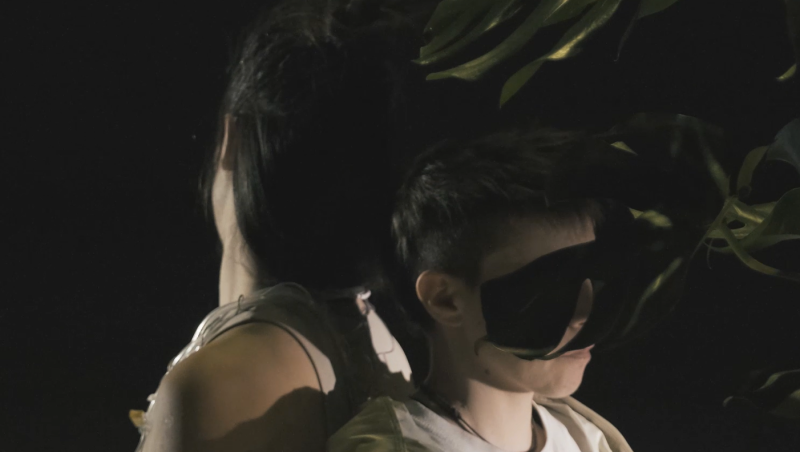
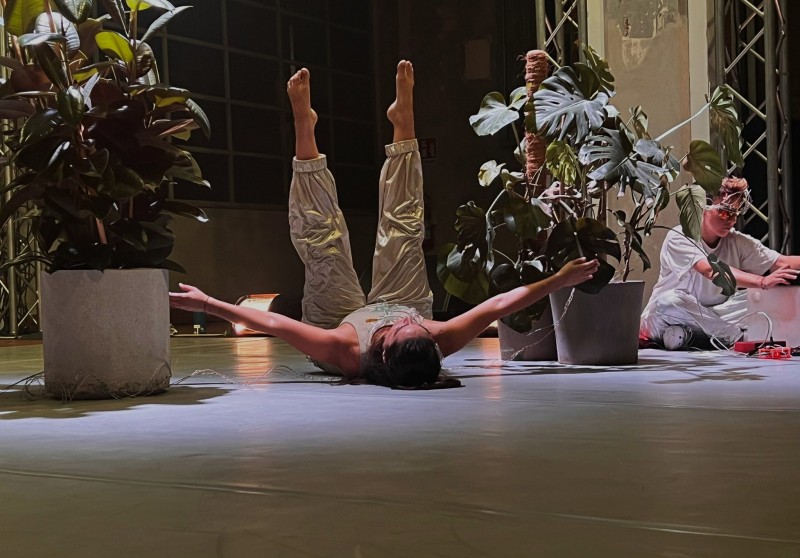
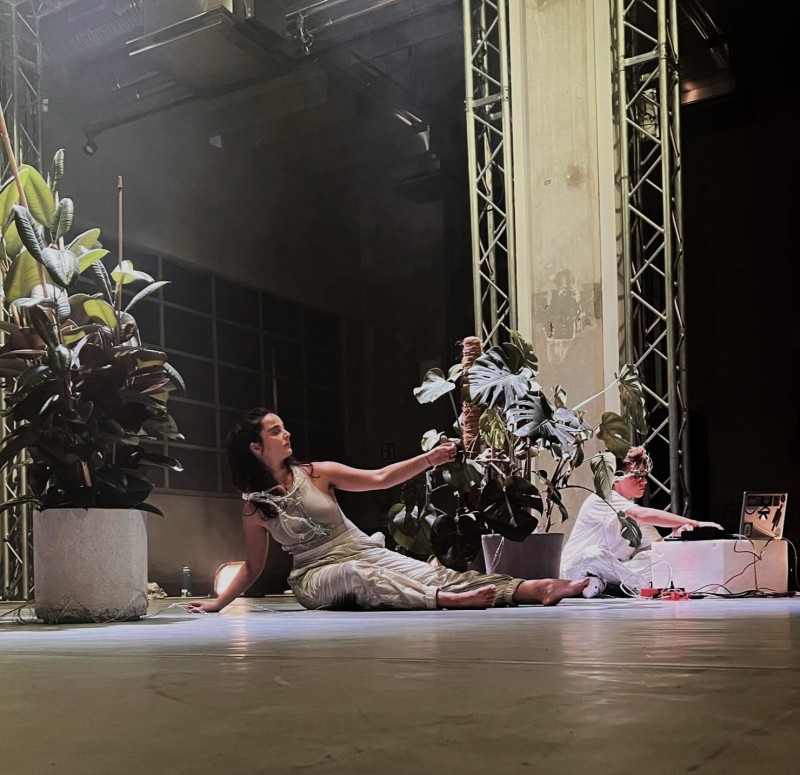
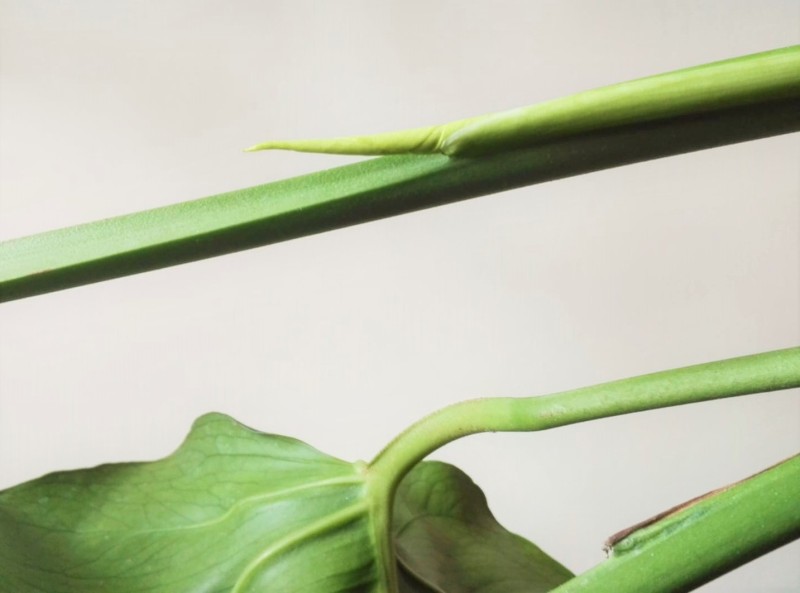
@Flavia Zaganelli
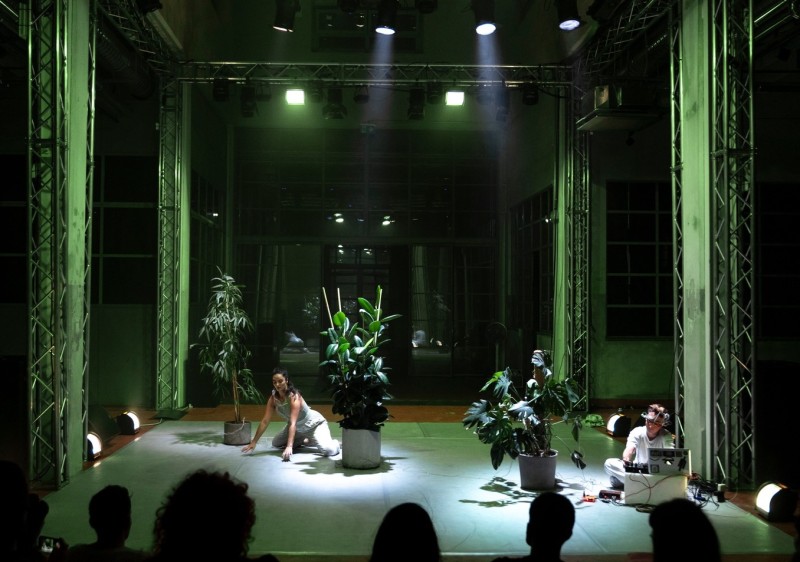
@Monia Pavoni
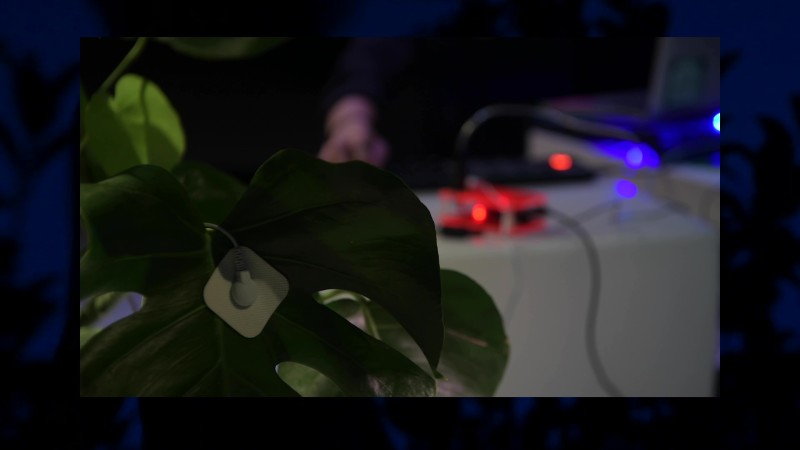
@Elena Mattioli / Lele Marcojanni
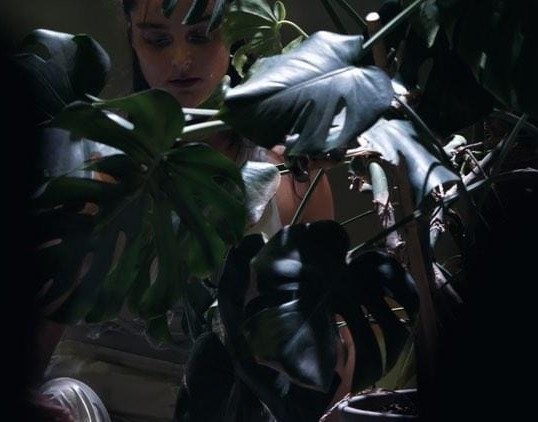
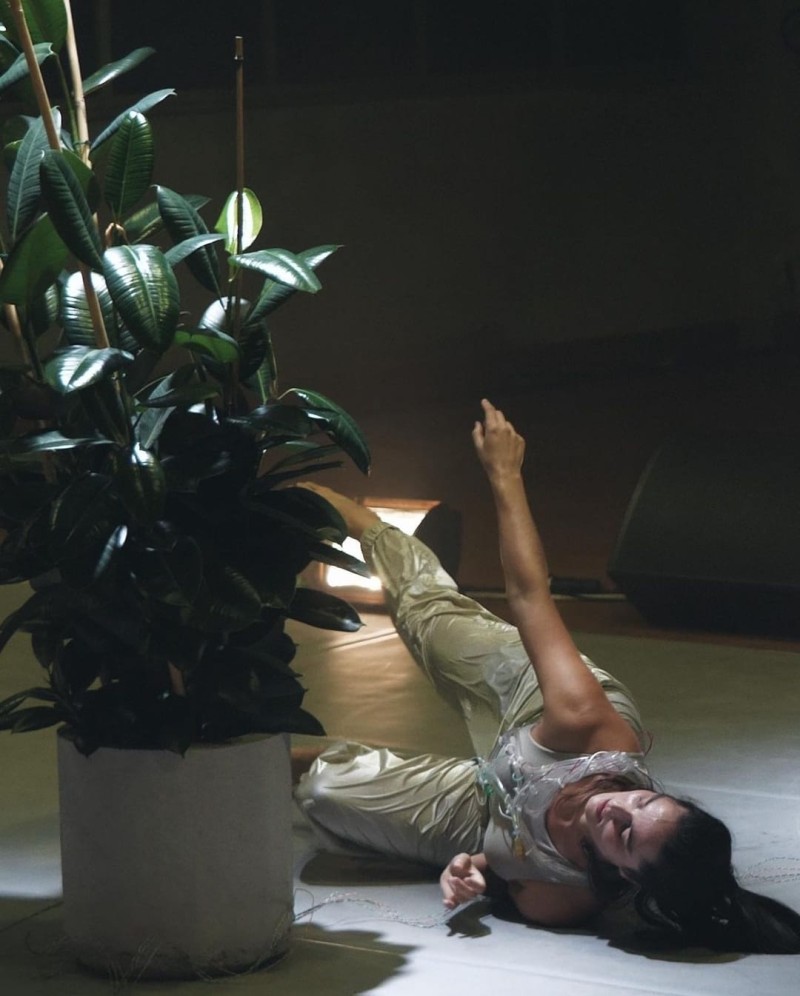
electrica /ecosi'stɛma/ investigates the relationship between plants, humans and technologies through the electricity flowing in and out of them, using the languages of live electronic music, contemporary dance and biodata sonification.
The investigation is theoretically rooted in the terrain of eco-transfeminism, queer practices of mingling between companion species, and around the concept of kinship that biologist Donna Haraway expressed in her essay Staying With the Trouble: Making Kin in the Chthulucene (2019, NOT Nero Editions).
The investigation starts with the use of an open-source device called Midi Sprout that, when attached to the leaves of a plant, via two electrodes is able to pick up electrical impulses emitted by the plant itself (biodata) and transform them into Midi signals. These signals are transformed into notes or control signals (sonification) and processed live by the sound artist who elaborates the soundscape. The body of the performer, influenced by the electrical field of the plants and consequentially by the sound, allows movement, dance and thus, in turn alters its own energetic/electrical field, influencing the emission of pulses by the plants.
Starting from this first circular entanglement mechanism, the work develops others approaches and investigates the potential of the relationship.
electrica /ecosi'stɛma/ electrica /ecosi'stɛma/ is a suspended and indefinite space-time where the visible and the invisibile co-exhist: human bodies, plants, technological devices together with vibrations, energies and sounds.
electrica /ecosi'stɛma/ draws from the world of Ritual and soars into a Possible Future.
A project by Flavia Zaganelli created together with Ceci Stuck
Plants
Monstera Deliciosa, Ficus Lyrata, Ficus Elastica
Technologies
Analog synth, Biodata sonification Device, MacBook, Ableton Live
Humans
Flavia Zaganelli (concept, research, creation, dance)
Ceci Stuck (research, sound)
Fabrizio Piro (lights)
Silvia Piantini (costumes)
Project realized with the support of Lavanderia a Vapore and Piemonte dal Vivo nell’ambito del progetto residenze coreografiche Lavanderia a Vapore, Corniolo Art Platform, Bando Abitante - Centro Nazionale di Produzione della Danza Virgilio Sieni e di Fondazione CR Firenze.
Supported by Santarcangelo Festival, P.I.A. Palazzina Indiano Arte, DAS Dispositivo Arti Sperimentali, Paleotto 11 and Fienile Fluò/Crexida with h(abita)t – Rete di Spazi per la Danza.
Accessibility
The performance is also available in a version that is accessible to different types of audiences (visually impaired people and people with neurodivergences) thanks to the collaboration with Al Di Qua Artists, Giuseppe Comuniello, Camilla Guarino ed Elia Colovan.
PRESS REVIEW
The project premiered on February 25, 2023 at Spazio Kor (Asti) as a part of NODO PIANO season curated by Chiara Bersani and Giulia Traversi.
Below is a selected press review in Italian:
Quando i corpi si incontrano e suonano
LA STAMPA di Asti, 25 febbraio 2023, Carlo Francesco Conti
"...In altre parole, unite la 3ª legge di Clarke («Qualunque tecnologia sufficientemente avanzata è indistinguibile dalla magia») e lo sciamanesimo digitale del «Manifesto cyborg» di Donna Haraway ed entrerete nella dimensione di «electrica /ecosi’stεma/», dove corpi vegetali, umani e tecnologici interagiscono grazie a vibrazioni muscolari, riverberi sonori, energie clorofilliane e impulsi elettrici captati da sensori...."
LA STAMPA di Asti, 28 febbraio 2023, Carlo Francesco Conti
"...la presenza delle tre piante disposte diagonalmente sulla scena fa dello spettacolo un’opera post-umana in cui, sia pure tramite l’intervento umano, viene riservato un ruolo importante ad altri esseri senzienti di differente natura. Il risultato è coinvolgente, il sapore è quello delle scoperte, delle esplorazioni di territori poco noti..."
Vegetale, tecnologico, umano. L’indagine a tre livelli di Flavia Zaganelli e Cecilia Stacchiotti
Blog di Lavanderia a Vapore, 24 febbraio 2023, Matteo Tamborrino.